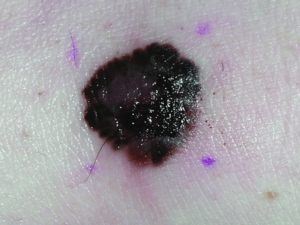As the video mentions, spotting skin cancer as early as possible is critical to cure rates and reduced treatment. Logic suggests detection is less likely to happen if you live without a partner, a hypothesis backed up by research.
A 2020 joint UK and Danish study looked at melanoma risk over a 20 year period, for people who had seen a spouse, or partner die.
They found that the group had a lower rate of diagnosis than average, yet a 17% higher chance of dying from melanoma. The disease was less likely to be spotted before reaching a later, more dangerous stage.
Similar outcomes have been identified in people who divorced and remained on their own, or lived without a partner for other reasons.
Research in Sweden found that men living alone for a number of years had a 30% increased risk of mortality from melanoma. Older women also tended to have more advanced melanoma at the time of diagnosis.
Primary Cause
Psychological stress, or behavioural changes can follow divorce, or bereavement and they may be mentioned as risk factors for melanoma. Clinical evidence on these aspects is however limited and unclear.
The reality is that partners play a key role in finding the early signs of skin cancer. Their assistance helps to bring diagnosis and treatment before a cancer progresses, becoming more aggressive and harder to treat.
There is also evidence that people living on their own are less likely to check their own skin, when the opposite should be true.
Most cancers and significantly skin cancer have far better outcomes when detected early. Even with modern treatment, the five year survival rate for stage 4 melanoma is around 25%, compared to 98% at stage 1.
Clear Solutions
Rather than less, people without a partner should be more vigilant about checking their skin and include all areas of the body. As an illustrated skin check guide shows, the process is manageable and does not take too long.
Specialist clinics offer skin checks under the supervision of a consultant dermatologist. There will be at risk groups who should attend more regularly but for all of us, booking an appointment once a year makes sense.
By all means see more on skin cancer and screening, or contact our team for advice. We appreciate the differences brought about by living alone and wish to ensure people are not put at greater risk.



